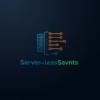The Future of Serverless for Frontend and AI Developers
serverless frontend
serverless AI
edge computing
serverless GPU

Serverless Today: Foundation for Tomorrow
Current serverless adoption continues its explosive growth, with frontend developers and AI engineers leading the charge. Key 2025 statistics reveal:
- 78% of new frontend projects deploy on serverless platforms
- AI prototyping time reduced by 65% using serverless GPUs
- 45% of enterprises have serverless-first policies
- Cold start times reduced by 90% since 2023
This foundation sets the stage for transformative changes in how we build applications. As serverless scales to handle more complex workloads, its role expands beyond simple functions to comprehensive application platforms.
Frontend Revolution: The 2025-2030 Roadmap
1. Edge-Native Development
Frontend development will shift to edge-first paradigms:
- Local development environments that simulate edge networks
- Framework-specific edge adapters (React Edge, Vue Edge)
- Automatic code splitting for edge deployment
- Geographically-aware component loading
2. Visual Serverless Composition
Next-generation IDEs will feature:
// Future visual development pseudocode
const checkoutFlow = new ServerlessWorkflow()
.add(EdgeAuthComponent)
.connect(PaymentProcessor)
.withStateManagement()
.deployToEdge();3. AI-Enhanced Development
Generative AI will transform frontend workflows:
- Automated accessibility compliance checks
- AI-assisted performance optimization
- Real-time design-to-code translation
- Predictive bundle splitting

AI Development Transformation
Democratized AI Training
Serverless GPUs will enable one-click model training with automated:
- Resource provisioning
- Hyperparameter tuning
- Cost-optimized architecture selection
- Distributed training orchestration
Intelligent Function Orchestration
AI will optimize serverless workflows:
- Predictive scaling based on usage patterns
- Automatic error recovery
- Cost-performance optimization
- Security anomaly detection
Unified AI-Frontend Stacks
Tight integration between:
- Frontend components
- Inference functions
- Real-time data pipelines
- Model version management
Emerging Technologies Shaping Serverless
1. WebAssembly (WASM) Dominance
WASM will revolutionize serverless by:
- Enabling near-instant cold starts
- Supporting multiple languages in one function
- Providing predictable performance
- Running securely at the edge
2. Persistent State Solutions
Solving the state management challenge:
- Distributed serverless databases
- Edge-optimized key-value stores
- Automatic state hydration/dehydration
- Conflict-free replicated data types (CRDTs)
3. Serverless-Edge Convergence
The distinction between serverless and edge will blur:
- Single deployment targets multiple environments
- Intelligent workload placement
- Unified observability across edge nodes
- Consistent security policies

Industry Impact Projections
| Industry | 2025 Impact | 2030 Transformation |
|---|---|---|
| E-commerce | Personalized edge caching | AI storefronts with real-time adaptation |
| Healthcare | Secure medical imaging analysis | Real-time diagnostic assistants at edge |
| Finance | Fraud detection functions | Edge-based trading algorithms |
| Media | Dynamic content delivery | Personalized generative content streams |
Developer Experience Evolution
1. Visual Workflow Builders
Drag-and-drop interfaces for:
- Function composition
- Data pipeline creation
- AI model integration
- State management configuration
2. Unified Local/Cloud Environments
Seamless development experience featuring:
- Local simulation of cloud services
- Instant cloud synchronization
- Production parity from day one
- Automated environment provisioning
3. AI-Powered DevOps
Intelligent systems handling:
- Automated performance optimization
- Security vulnerability prevention
- Cost-efficient resource allocation
- Predictive scaling configuration
Explore Serverless Frontiers
Challenges and Solutions
State Management
Solution: Distributed data stores with automatic synchronization and conflict resolution
Vendor Lock-in
Solution: Open-source serverless platforms and multi-cloud abstraction layers
Debugging Complexity
Solution: AI-assisted debugging tools and distributed tracing standardization
Security Concerns
Solution: Automated policy generation and runtime protection systems
Preparing for the Serverless Future
Essential Developer Skills
- Distributed systems architecture
- Edge computing patterns
- AI integration techniques
- Multi-cloud deployment strategies
- Performance optimization for constrained environments
Strategic Recommendations
- Adopt serverless-first thinking in new projects
- Invest in learning edge computing concepts
- Experiment with serverless AI platforms
- Contribute to open-source serverless projects
- Develop abstraction layers for multi-cloud

